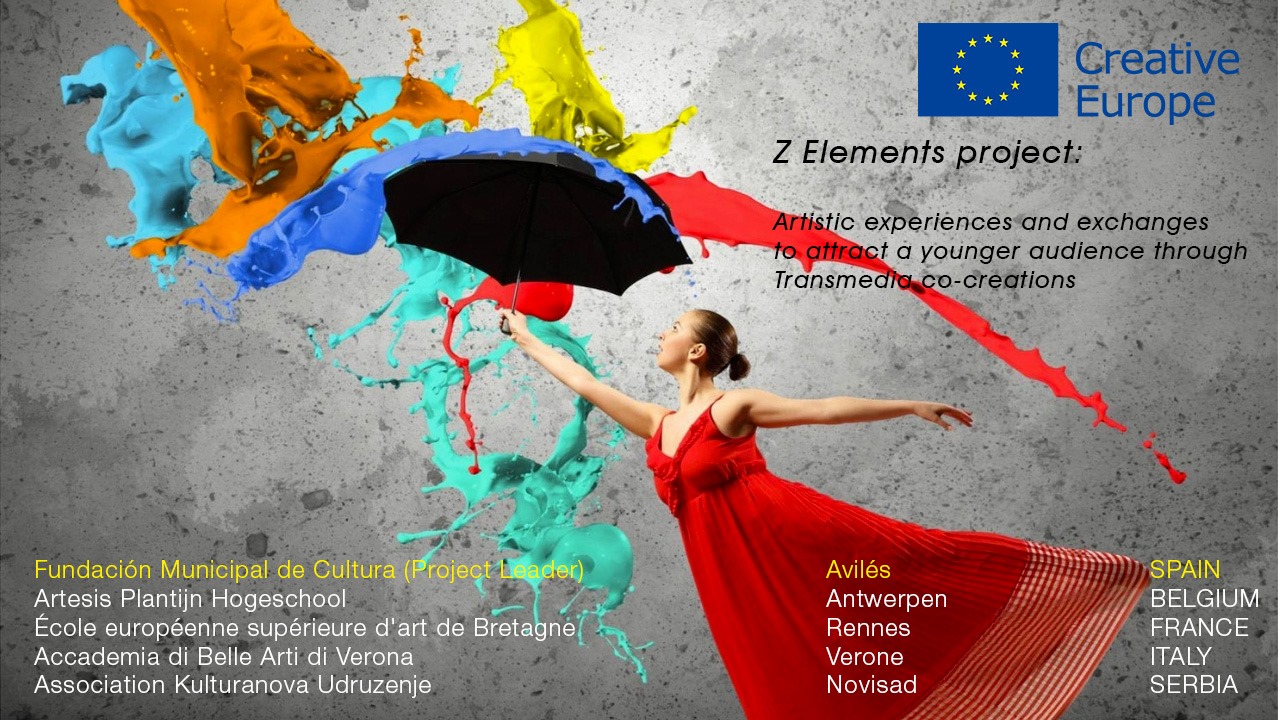 Generation Z is formed by young people that grew up during the last years of the economic crisis, mostly born between mid 90’s and 2010. They represent 25% of the world population and have a strong influential capacity that make them a decisive target
Generation Z is formed by young people that grew up during the last years of the economic crisis, mostly born between mid 90’s and 2010. They represent 25% of the world population and have a strong influential capacity that make them a decisive target
, particularly for Cultural and Creative Industries (CCIs) and institutions. It is considered as the first generation to be digital natives, having grown up permanently connected in a multi-screen environment, and being familiar with anything related to Internet or digital multitasking. Due to their digital profile, many traditional cultural institutions and artists are facing difficulties in attracting and engaging them.
The objective of the project is to develop artistic experiences and exchanges to explore how traditional and analog artistic expressions can involve and attract a younger audience from Generation Z, and how young people can contribute to the development of such subsectors through co-creative processes towards the development of Digital Transmedia Storytelling products.
In that framework, Z Elements will implement a series of activities in order to pursue the following objectives:
- Audience development Through the involvement of some 75 young volunteers in co-creation and co-curation of works, their participation of in workshops with artists and conversion into e-reporters. The project will also develop some research to identify and map Good Practices and trends towards the e distribution of cultural goods that better reach young people.
- Mobilities Through the participation 20 artists from different fields to 4 artistic residences for the production of works inspired by the classical elements (Water, Fire, Earth and Aether), and the posterior distribution of the work through Social Networks and platforms
- Capacity-Building–New digital skills Training of participants on Digital Transmedia Storytelling through ad hoc workshops and “Learning by doing” tutored transformation processes. Project partners are Fundacion Municipal de cultura de Aviles (Aviles, Spain), Artesis Plantijn Hogeschool Antwerpen (Antwerpen, Belgium), Ecole Superieure Europeenne d'art de Bretagne (Rennes, France), Fondazione Accademia di Belle Arti di Verona (Verona, Italy) and Kulturanova (Novi Sad, Serbia) and it is co-funded by Creative Europe program of European Commission.








